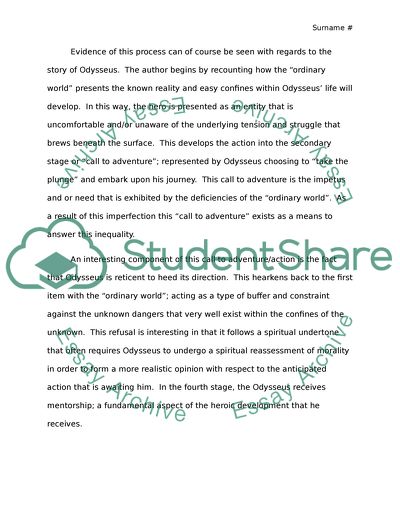Cite this document
(“The Hero(ine)'s Journey Essay Example | Topics and Well Written Essays - 1500 words”, n.d.)
Retrieved from https://studentshare.org/english/1494025-the-heroineyies-journey
Retrieved from https://studentshare.org/english/1494025-the-heroineyies-journey
(The Hero(ine)'S Journey Essay Example | Topics and Well Written Essays - 1500 Words)
https://studentshare.org/english/1494025-the-heroineyies-journey.
https://studentshare.org/english/1494025-the-heroineyies-journey.
“The Hero(ine)'S Journey Essay Example | Topics and Well Written Essays - 1500 Words”, n.d. https://studentshare.org/english/1494025-the-heroineyies-journey.


